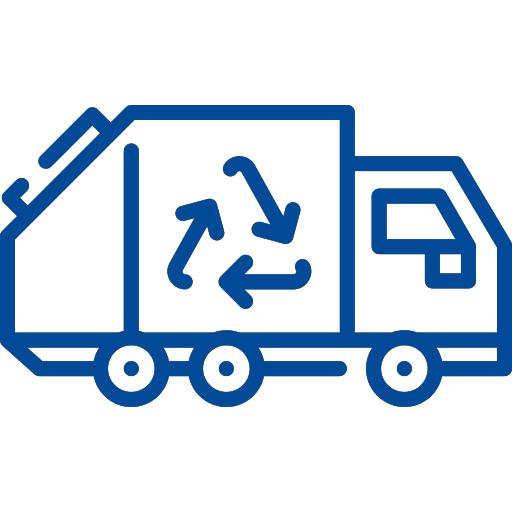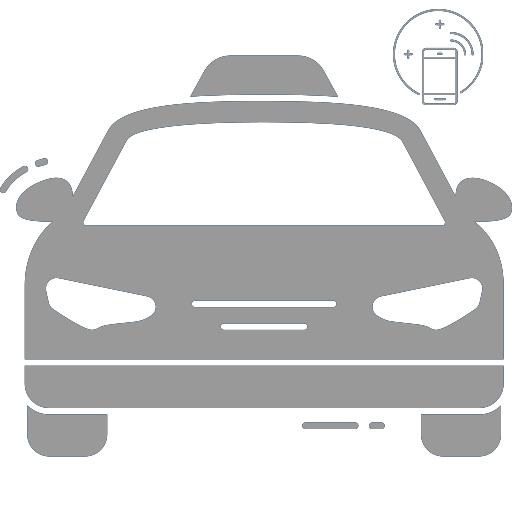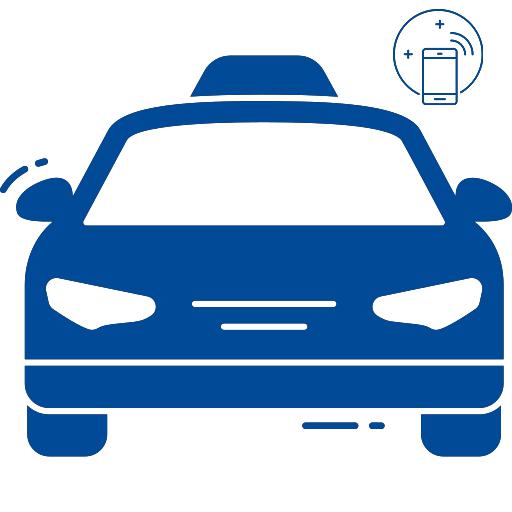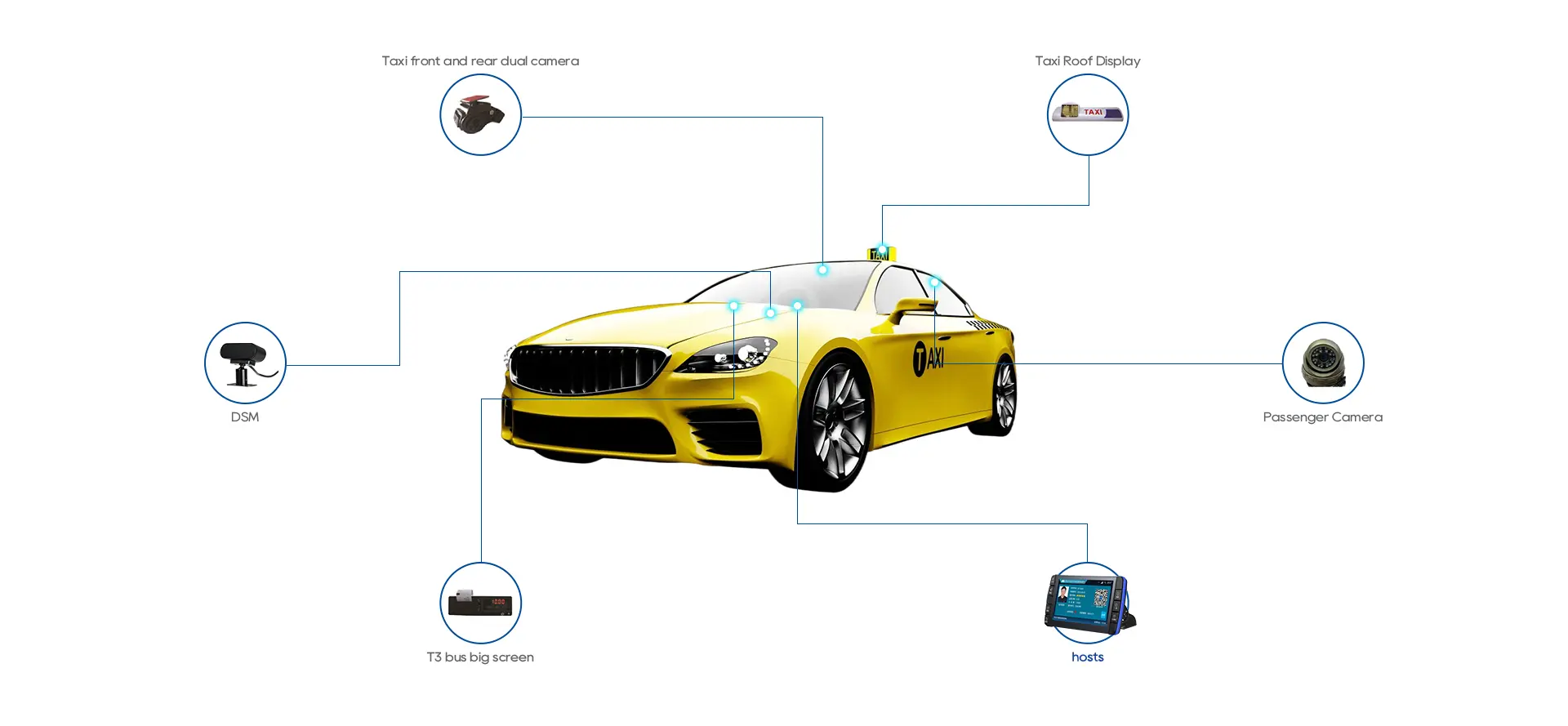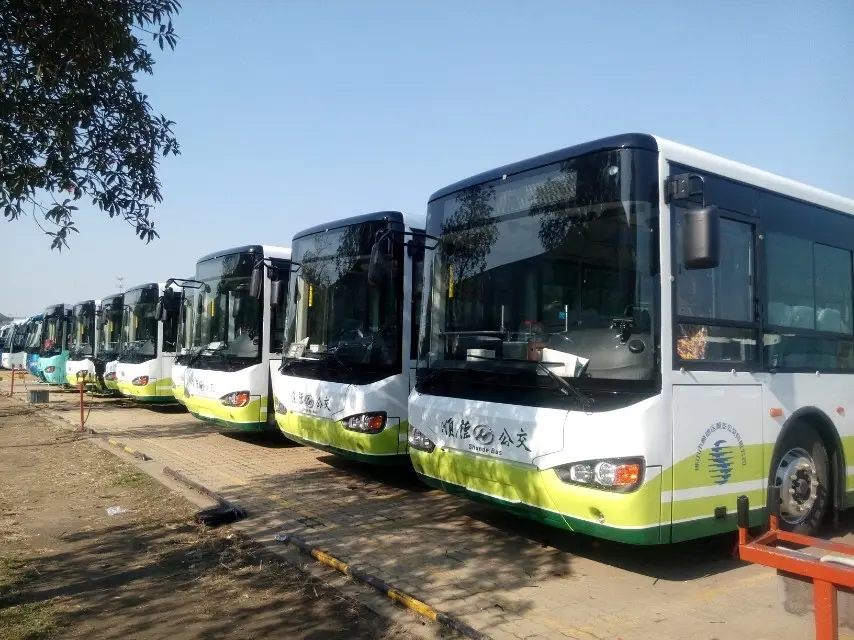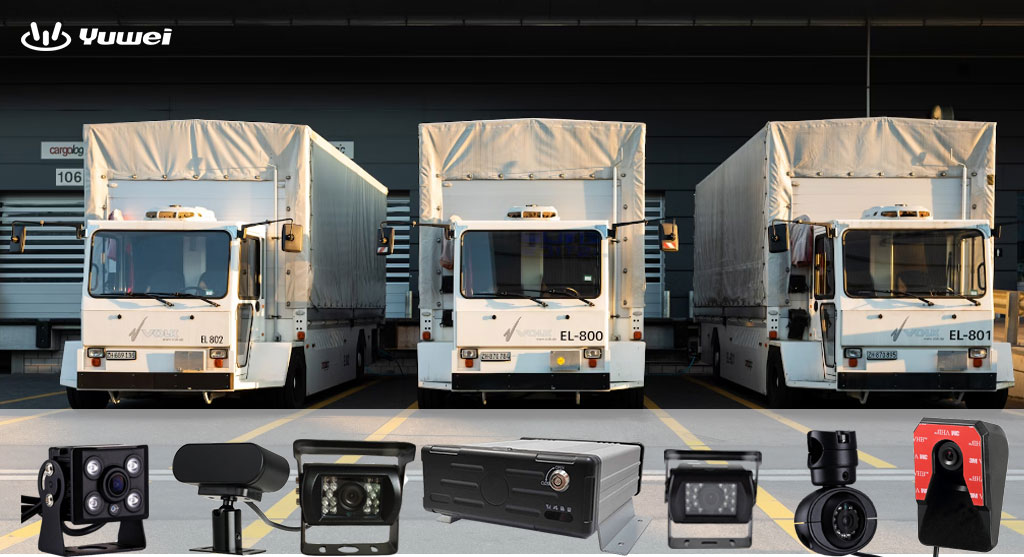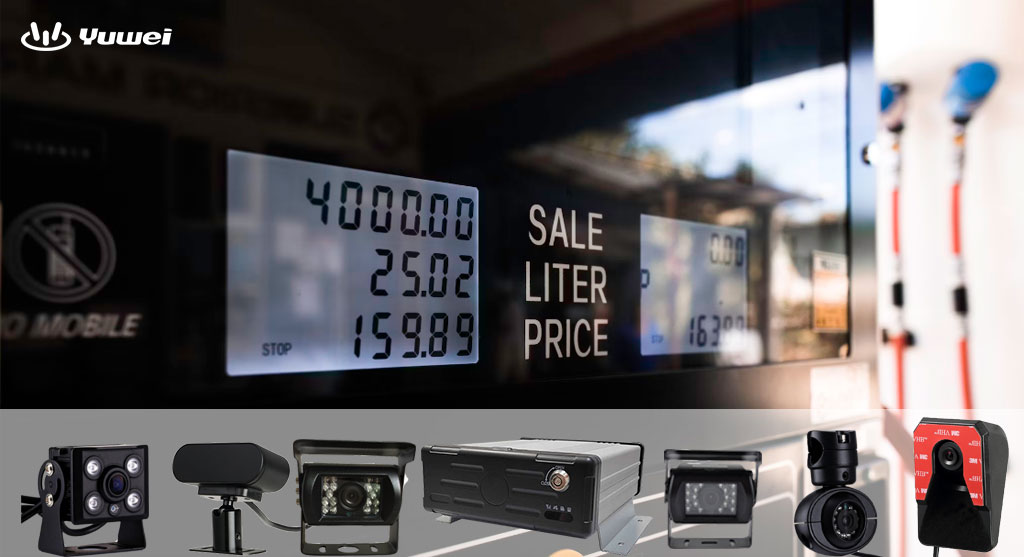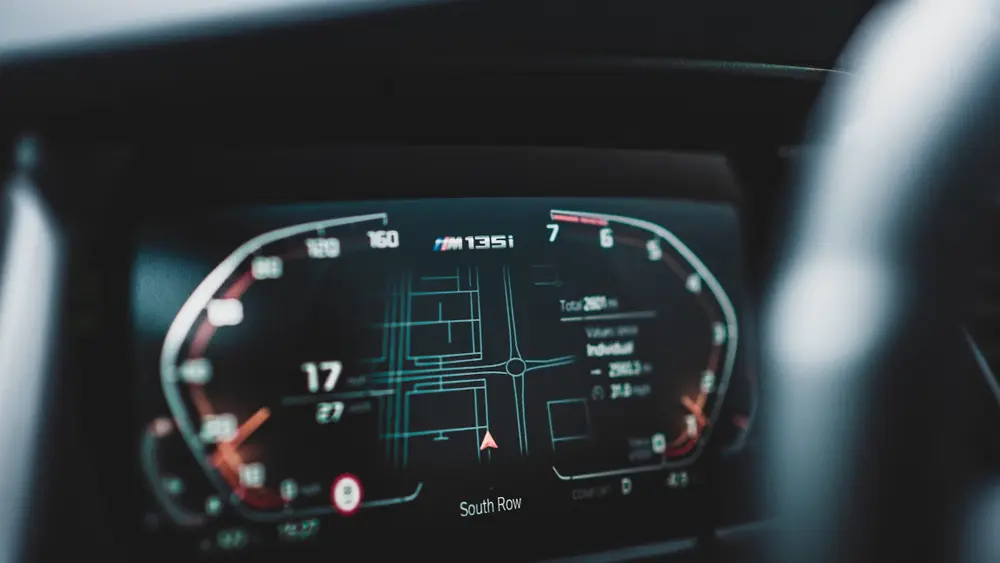Fuel Tanker CCTV Camera System
Fuel Tanker CCTV Camera System
Fuel Tanker Management Challenges
The fuel tanker transportation industry is a crucial sector within logistics due to the transport of highly flammable and explosive materials. Ensuring the safe operation of fuel tankers is paramount, as accidents can lead to severe consequences. Monitoring driver behavior, including speeding, hard braking, acceleration, turning, fatigue, and distracted driving, is essential for preventing accidents.
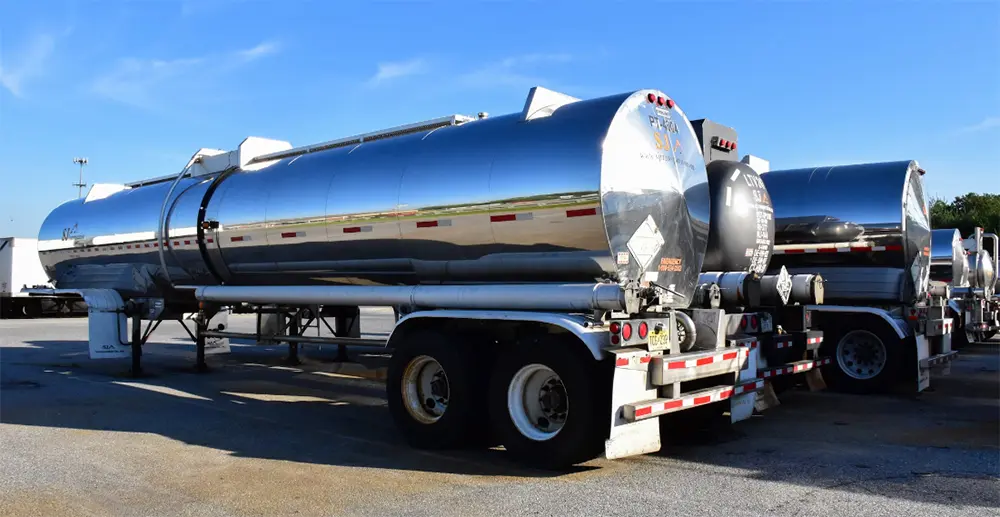
Causes of Fuel Tanker Accidents:
- Accidents caused by reckless driving and driver fatigue
- Lack of sufficient evidence after accidents
- Increased costs due to fuel theft/fraud
- High insurance costs
- Uncontrolled driver attendance
YUWEI Fuel Tanker CCTV Camera System
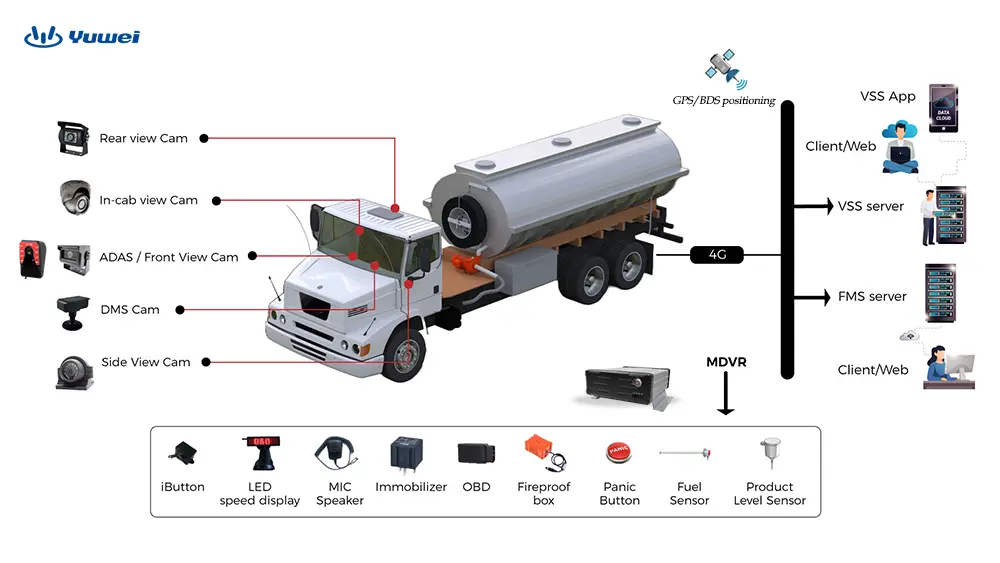
Video Monitoring as Evidence
YUWEI's fuel tanker management solution supports real-time video monitoring, live GPS tracking, and the ability to capture snapshots based on trigger events or predefined schedules.
Driver Behavior Monitoring
Event video clips can be uploaded to the central server based on alerts triggered by speeding, non-distracted driving, collisions, fuel sensors, product level sensors, and panic triggers.
Telematics Functionality
Our solution integrates seamlessly with customer platforms, providing comprehensive fleet tracking and management monitoring capabilities.
Redundant System Design
The solution includes a fireproof box for recording backups in case of explosions and a UPS for power backup, ensuring uninterrupted footage capture.
Features and Advantages
- GPS/BDS Real-time Positioning
- Sends vehicle location information to the management center in real-time, ensuring fleet managers are always aware of vehicle positions.
- Intelligent Video Monitoring
- Multi-channel built-in AI algorithms for video analysis, sending short alert videos to the center upon alarm triggers.
- Multiple Driver Identification Methods
- Facial recognition
- Button card reader
- RFID reader
- Magnetic card reader
- Intelligent Fuel Monitoring
- Detects changes in fuel levels and sends alerts to the central server if abnormal alarms are triggered.
- Multi-channel built-in AI algorithms for video analysis, sending short alert videos to the center upon alarm triggers.
- Driver Behavior Monitoring
- Fatigue detection and alerts through seat vibrations, reminding drivers to drive safely.
- Detection of speeding, HA, HB, and HC with a speed control system.
Services We Offer for Your Business
- Significantly enhance the safety of goods, vehicles, and drivers
- Improve truck driver behavior
- Reduce vehicle and driver maintenance and insurance costs
- Provide evidence for incidents
- Perfectly integrate with the customer’s FMS, unifying all systems into one
Email:hello@yuweitek.com


















